Education for Makers and STEM Teachers
The Maker Movement is a social movement comprised of independent inventors, tinkerers, and designers. Makers, who resemble computer hackers from the 1960s and 1970s, create real-world artifacts.
Maker Education emphasizes hands-on learning.
It encourages students to take responsibility for their own learning by solving real-world problems.
This page is a gateway to valuable content for anyone interested in Maker Education.
Follow this gateway to find...
Maker Education Revolution
Using Maker Education as a model for education in the 21st century, Dr Peter Dalmaris explains how teachers, parents, and learners can apply the educational methods of inventors and innovators for the benefit of their students and children.
Read the entire book online right here. Downloadable eBook or paper back also available.
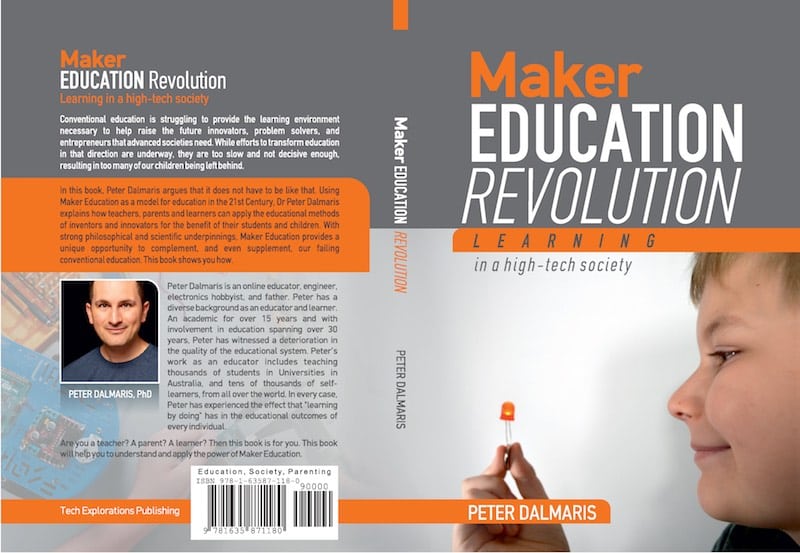
An introduction
My understanding of technology as a child revolved around my parents' video cassette recorder and television. Everywhere I looked, there was technology that made life easier, but it was obviously in desperate need of radical improvement.
A brief history of modern education
The organisation of schools in the 18th and 19th centuries was very similar to that of today. Unlike their counterparts in Ancient Greece and Ancient Rome, the purpose of these schools was to raise the literacy of the "common people" to a level suitable for life as a factory worker. In twenty-first-century technological societies, little has changed in terms of educational methods.
An education system in crisis
What is the purpose of education, and how can it best be achieved? Many centuries ago, philosophers attempted to answer this question.
The Prussian education system of the late 18th and early 19th centuries was designed to instill blind obedience to authority while also reinforcing class and race prejudice in children.
Think different: learners in charge
MOOCs have provided an incredible opportunity for millions of people to gain access to educational resources. From nuclear physics to supercomputing, liberal arts to philosophy, the Internet and educational platforms can teach anyone anything they want to know.
Learning like an inventor
Inventors are aware that inventions take a long time to produce results. Nikola Tesla believed that in order to be an effective inventor, one must be completely immersed in their work. Tesla, like Da Vinci, had a track record of mostly failures interspersed with successes.
Inventors and their process of make, test, learn
Above all, an inventor is a learner. Inventors solve real-world problems by developing physical solutions. They must make a series of decisions, apply knowledge from various domains, and investigate and learn about any new unknowns.
Maker Education: A new education revolution
The Maker Movement is a social movement comprised of independent inventors, tinkerers, and designers. Makers, who resemble computer hackers from the 1960s and 1970s, create real-world artefacts.
The philosophy of Maker Education
The philosophical foundations of the Maker Movement and the Maker educational style can be found in the writings of great philosophers. Aristotle was among the first to recognise the link between education and quality of life. Students, according to John Dewey, should be able to interact with and experience their curriculum.
The story of a learner in charge
Leo is an intelligent nine-year-old child who suffers from severe dyslexia. Leo was unable to find a classroom environment that fit his needs. While homeschooling, Leo and his dyslexic brother, Ari, are free to follow their interests in any area they choose.
Learners and mentors
Students in Maker Education are regarded as responsible individuals who are concerned with their own development as individuals and as Makers. The teacher is no longer solely responsible for developing curriculum specifications.
Learn by Play
A term used in education and psychology to explain how children make sense of the world is "learning through play." Children can explore, identify, take risks, and comprehend the world around them through play.
Deliberate practice
Deliberate practice has been demonstrated to be an effective method for achieving expert performance in a variety of competencies. There is a strong correlation between the amount of time a student spends not just practicing, but doing deliberate practice, and the student's long-term outcomes.
The importance of technology education
Engineering, technology, and science generate wealth, prosperity, and growth.
Between 2000 and 2008, nearly two-thirds of the UK's growth was attributed to innovation. Science and technology are becoming increasingly important to both developed and developing countries. In Australia and elsewhere, immigration fills the gap between the number of engineers and scientists required by industry and what universities produce.
How can we change the negative stereotypes that are so damaging to young people's perceptions of what it's like to be an engineer or scientist?
The role of the Arts in technology and education
At the Rhode Island School of Design, an initiative began to include a 'A' for Arts in STEM, making it 'STEAM' (Science, Technology, Engineering, Arts, Mathematics). Computer-generated images, video, virtual reality, 3D printing, and high-tech tools for artists are transforming art.
The Maker Movement is redefining arts and crafts, as well as science and technology, as highly personal and social endeavours. Everyone is a maker, and as a result, everyone is also an artist. The arts can be utilised to naturally introduce children to the world of making.
Drive in Making
Motivation can be internal, such as the need to survive and be safe, or external, such as monetary rewards and social prominence.
Both drive and a growth mindset are naturally present in children, according to research. Maker Education focuses on nurturing and enhancing our natural desire to learn for the sake of learning.
Mindset in Making
A person who has a fixed mindset is predisposed to negativity. A person with a growth mindset is actively interested in improving.
The most important response from teachers and parents is a long-term intervention that will assist the student in developing a growth mindset. Studies show that the mindset of a student is a good predictor of their performance in life.
Learning at home: challenges and opportunities
There's no denying that learning at home is challenging. Peer pressure, performance pressure, and the typical feeling of embarrassment for asking a "silly" question are all learning barriers that can be overcome at home. A prescribed curriculum must be followed within the confines of a strict schedule in a formal learning environment.
Some people learn better in a group setting, while others prefer solitude, and some even have dyslexia. Learning challenges in formal learning environments are a daily reality for all children. Therefore, it is critical to consider approaches to improve learning at home.
Some of the things makers do
All of the project ideas in this article involve constructing a physical object, as Maker Education is all about learning through making. There is no material that isn't good enough in the Maker Education spirit - even a trip to the dumpster can yield a small treasure!
Many of us now have the ability to design and manufacture parts for open-source robotics, art, and everyday objects. One of the maker's favourite materials is cardboard, which can be used to construct simple robots. Learners can construct more complicated and geometrically exact objects using 3D printing, 3D scanning, and design.
The learning corner
Making a makerspace at home is now easier and less expensive than ever. A home makerspace is not required to have the same tools and materials as a public makerspace.
In this post, I'll go over the fundamentals of setting up a home makerspace. Because distance and scheduling are no longer an issue, having a dedicated space at home increases your likelihood of engaging in making.
Learning tools
Education tools are designed to facilitate learning. They make certain that the learner has as few 'gaps' in knowledge as possible.
Good tools make learning more effective and enjoyable. Most of what I present here are examples of educational tools (usually disguised as toys) for young self-learners. Educational tools make learning more efficient and enjoyable.
Online resources for Maker learners
There are numerous high-quality online resources for makers to find inspiration, knowledge, and practical advice. Some of them will be highlighted in this post.
To guarantee that they focus on teaching and learning, I chose resources that are not directly supported by a specific equipment vendor.
Brick-and-mortar resources for Maker learners
"Makerspaces" are gathering places for makers to converse and create. These establishments can be administered by a group such as a university or a library, or they can be run by individuals. A makerspace can help you expand your creativity and improve the quality of your work.
Members not only get access to tools, equipment, and space, but they also have access to certified training programs in topics like 3D printing and CNC milling. Makerspaces can be found in almost every major city on the planet.
Maker Movement Manifesto and the Learning Space
To create a flexible and engaging learning environment, you must be adaptable. This post examines the concepts that should guide any Maker Education learning environment to ensure that it adheres to the Maker Education spirit.
Can we afford to ignore Maker Education?
A core value of Maker-style education is learning by doing. In a Western or developed country, the average student will spend approximately eleven thousand hours in school. Less than 10% of that time is dedicated to teaching students how to think like a scientist or engineer.
I was given the opportunity to choose what I wanted to work on for my graduate project in my final year of university. I was able to experience the freedom I had craved since childhood - the freedom to experiment and create things that didn't work. What would life be like if the joy of making, as well as the sense of accomplishment and fulfilment it provides, were at the heart of our schooling years?
The new role of the school
There is almost no way to achieve any level of success in any field without the ability to solve problems, and computational thinking provides a methodology for developing such skills.
Initiatives such as Mathematics by Inquiry and the Coding Across The Curriculum program emphasise practical learning methodologies aimed at assisting young learners in developing fundamental making, critical thinking, and problem-solving skills.
The Maker Mind Meld Summit
Watch entire presentations from the 2019 Maker Mind Meld Summit. This content will be available soon.
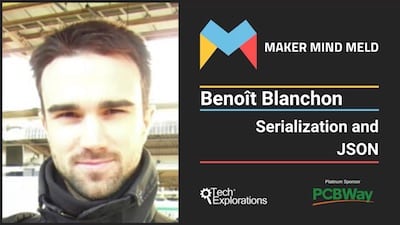
Benoît Blanchon – Serialization and JSON
Benoît’s presentation is an introduction to JSON for Arduino users. He begins by implementing various serialization techniques to explain why JSON represents the best compromise for most projects. He continues with the implementation of JSON serialization from scratch, and finally, with a demonstration of how a library can be of help.
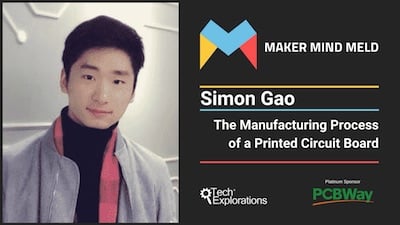
Simon Gao – The Manufacturing Process of a Printed Circuit Board
What happens to your Gerber files once you submit them to an online PCB manufacturer? In this presentation, Simon Gao will go into the details of the manufacturing process at PCBWay, a full-service Printed Circuit Board manufacturer.
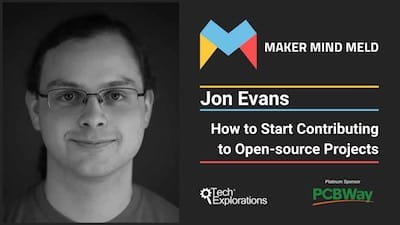
Jon Evans – How to contribute to an Open Source project
You’ve probably been using open-source software (and maybe even hardware) for a while — you might not even know it! Maybe you’ve wanted to get involved in an open-source project but weren’t sure how. Perhaps you haven’t even thought about getting involved before!

Mark Wilson - FlipClock
Flipping pixels is easier than flipping plastic. Mark created an Arduino version of the classic “Flip clock.” In place of motors and gears and split flaps, he created a plausible-looking rendering of a device on a 480×320 pixel LCD shield. The impetus for the project was the challenge of creating a reasonable animation of the flipping action.
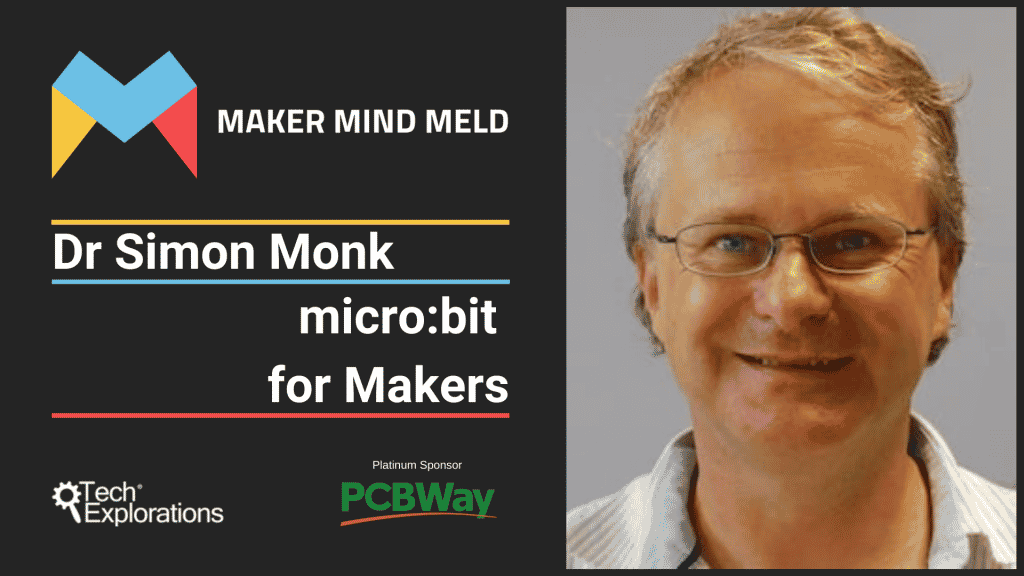
Simon Monk – micro:bit for Makers
The BBC micro:bit is a versatile microcontroller board that is widely used in education but is often overlooked by Makers. In this presentation, Simon will introduce the micro:bit and demonstrate some of its features such as built-in sensors, a rudimentary display, and radio hardware, that make it useful to Makers.
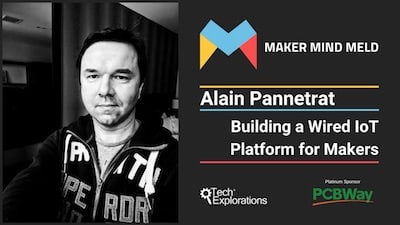
Alain Pannetrat – Building a Wired IoT Platform for Makers
Alain’s presentation tells the story of the creation of NoCAN: an Arduino-compatible IoT network based on CAN-bus. In the process, Alain explains what CAN-bus is, and what makes it exciting and useful for your embedded projects.
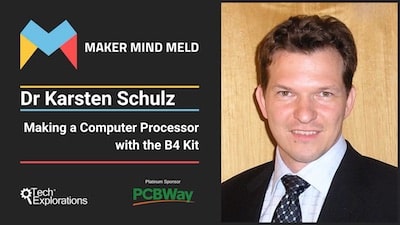
Karsten Schulz – Making a Computer Processor with the B4 Kit
The computer processor is one of the most amazing machines ever invented. Worldwide, billions of them carry out operations silently and efficiently, enabling many of the services that we have come to appreciate in our lives. But how do they work?
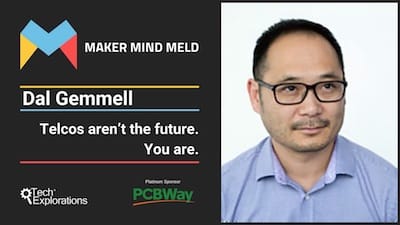
Dal Gemmell – Telcos aren’t the future. You are.
In the next few years 20-30+ billion devices are expected to connect on the Internet. The current networking infrastructure is too costly and complicated for IoT devices. A new kind of open, decentralized wireless network powered by blockchain and built by individuals is emerging. This network delivers range and roaming capabilities similar to cellular without the high cost or battery drain.
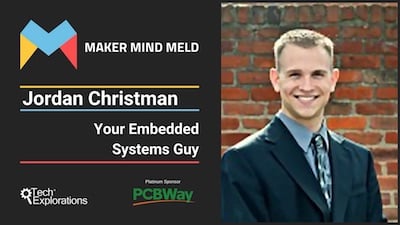
Jordan Christman – Getting Started with FPGAs
FPGAs is a fascinating topic because it entails the design of an integrated circuit using software tools after it has been manufactured and has left the fabricator.
In this presentation, Jordan will describe how FPGAs work, and how you can use them in your projects alongside a microcontroller and microprocessor.
STEM Education Summit
Watch entire presentations from the 2020 STEM Education Summit. This content will be available soon.
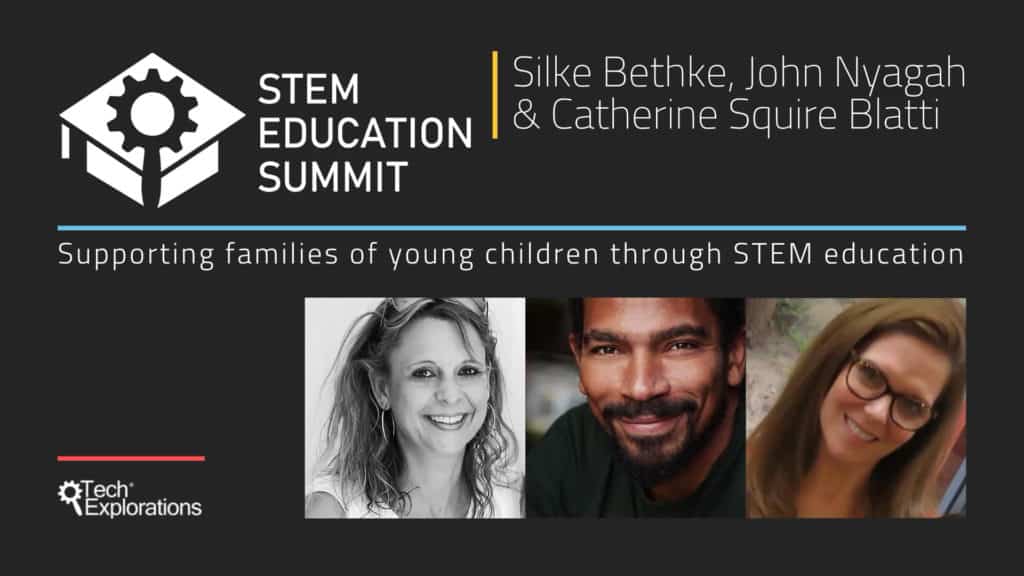
Silke Bethke, John Nyagah and Catherine Squire Blatti: Supporting families of young children through STEM education
Adapting approaches to teaching and learning while off-campus during physical distancing and engaging young children from home in enquiry-based STEM activities (via MS Teams).
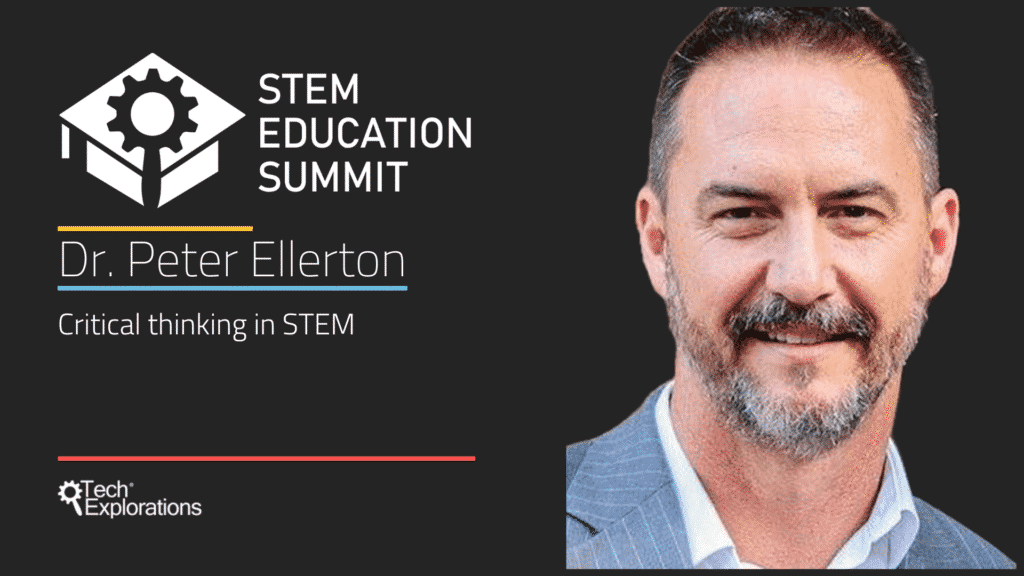
Dr Peter Ellerton: Critical thinking in STEM
In this talk, Dr Peter Ellerton will outline how to maximise learning outcomes through attention to critical thinking in the process of learning and in the application of learned knowledge.
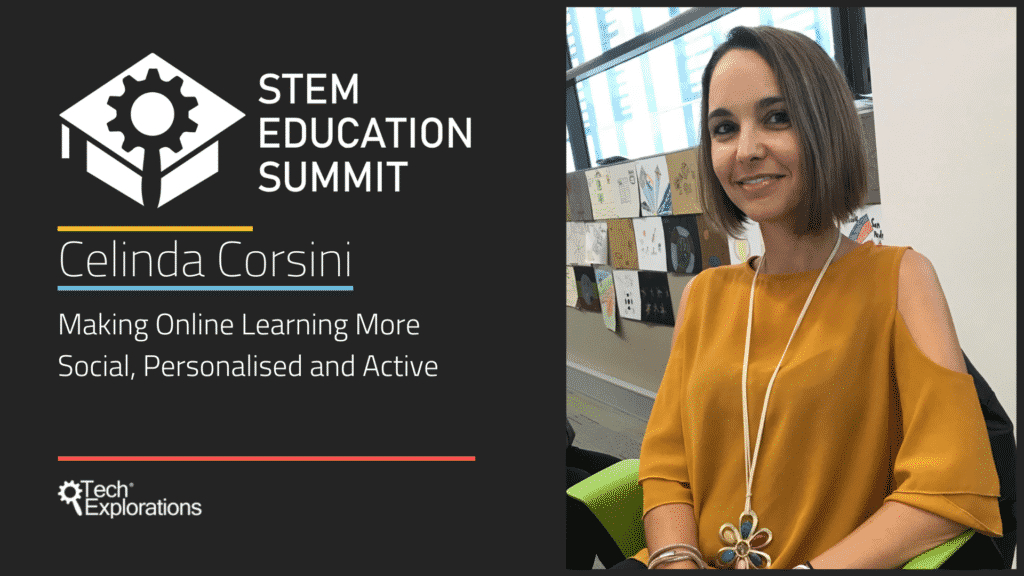
Celinda Corsini: Am I Teaching Robots or Humans?
This is the question I asked myself in 2015 when I realised it was time to abandon Flipped Learning. The method had proven to be incredibly effective and efficient, producing exceptional examination results, but its scope was disappointingly narrow.
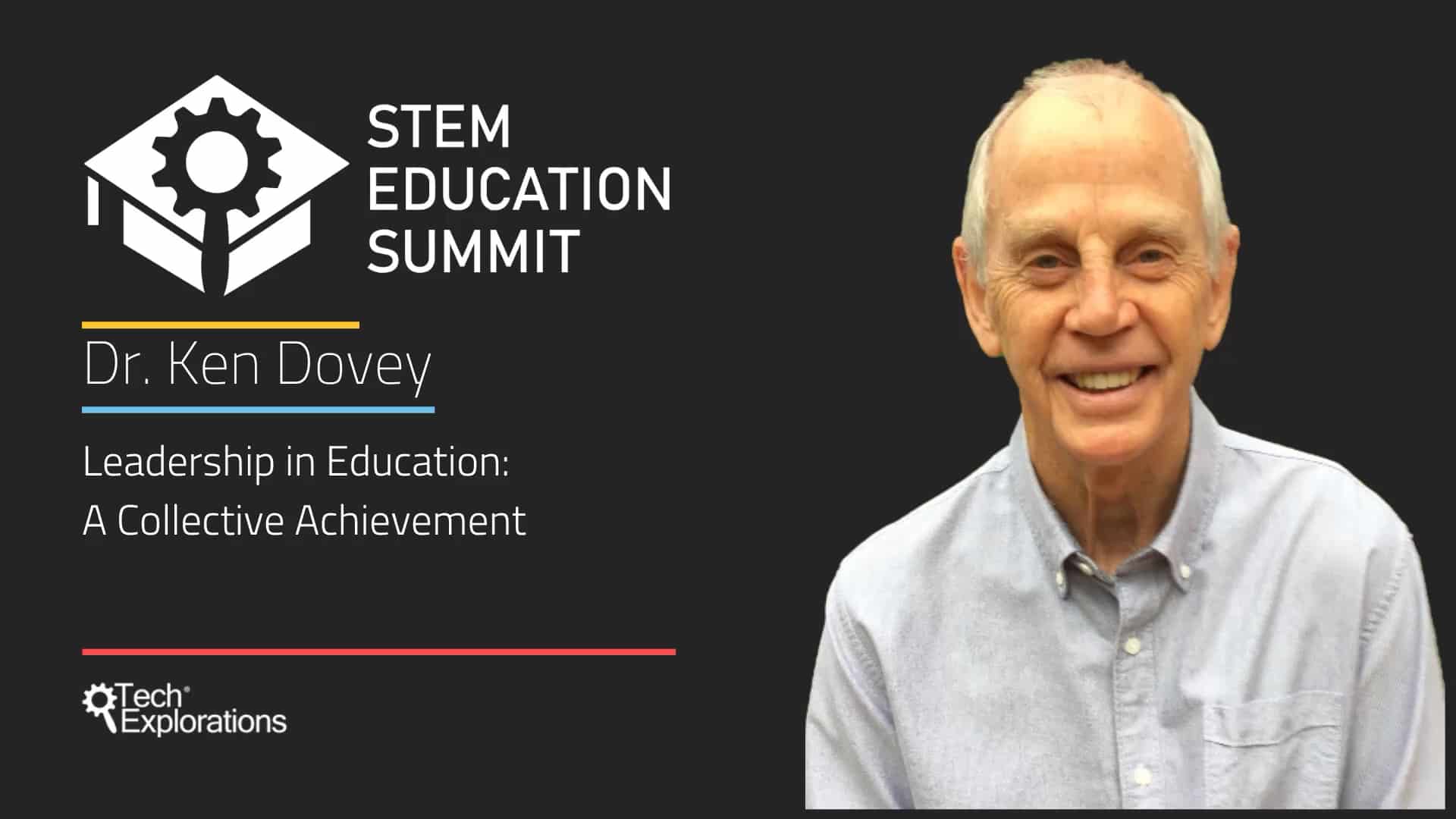
Dr Ken Dovey: Leadership in Education, A Collective Achievement
In this talk, Dr Ken Dovey will argue that an organization is a community with a purpose and that for any organization to be successful, leadership behaviour is required from everyone who holds a stake in the realization of that purpose.
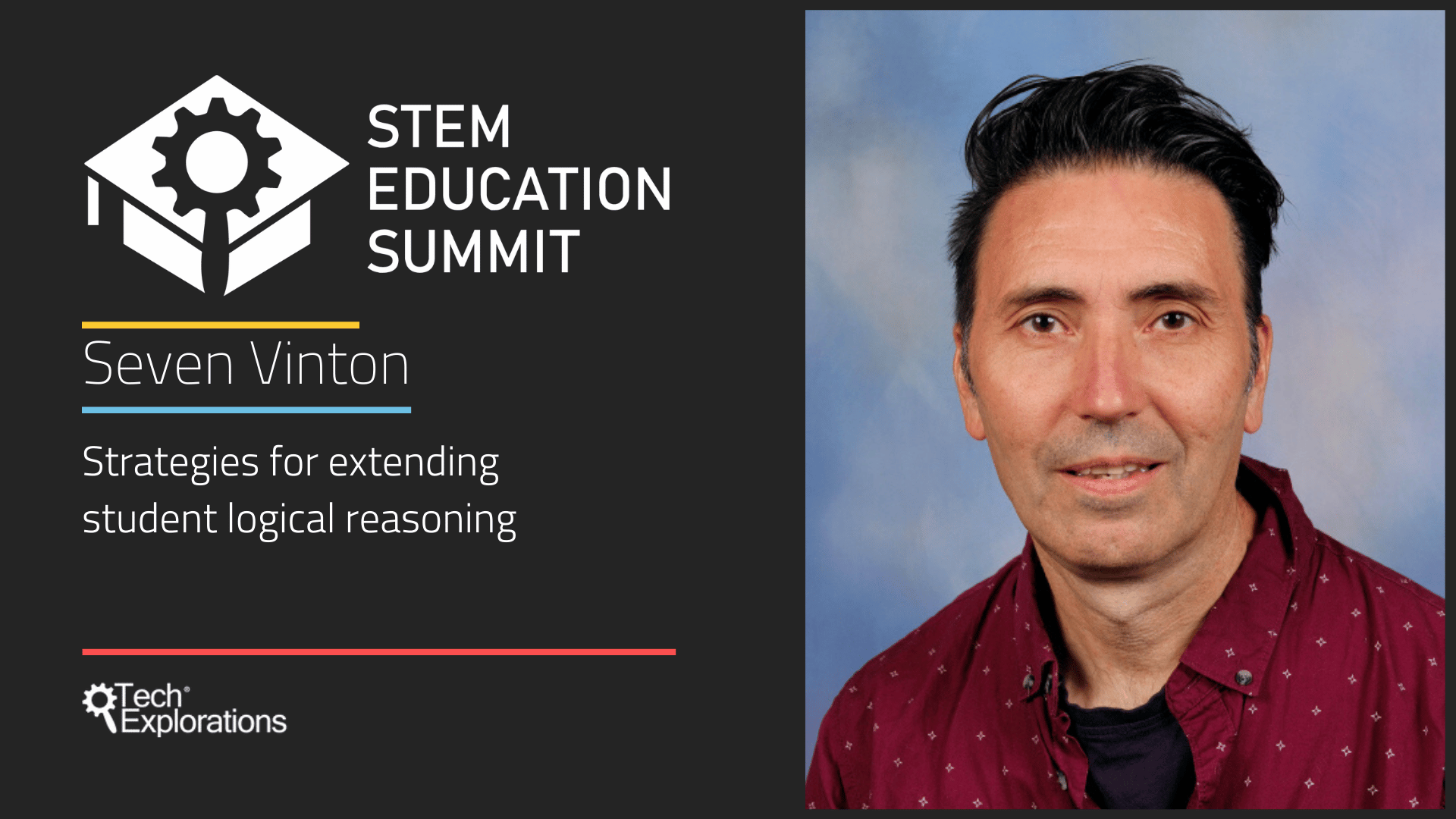
Seven Vinton: Strategies for extending student logical reasoning
Seven Vinton discusses some of the strategies he uses to extend students’ use of logical reasoning and prediction. He walks us through the ‘Flying Wing’ student project and discusses aspects of the design and engineering process to help provide students more engagement time in higher-order tasks.
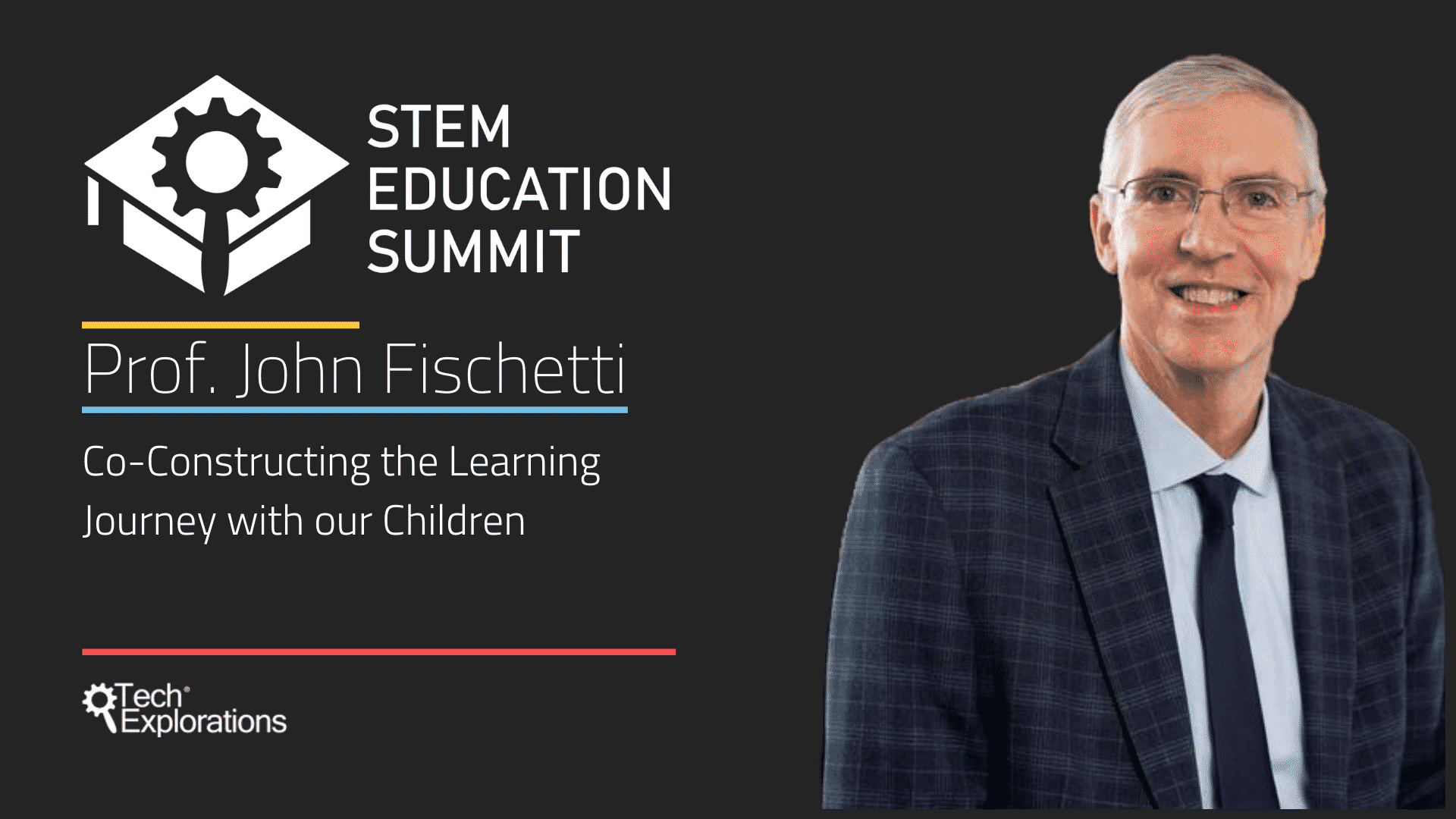
Prof John Fischetti: Co-Constructing the Learning Journey with our Children
As we move forward in these disruptive times, a new vision for learning, teaching and leading is required to maximise our purpose to educate all of our children so that they are inspired and are prepared to lead a great life. That trajectory challenges many “old school” approaches.
Other recommended resource about Maker Education
These are education resources from our Blog, Stemiverse and Tech Explorations podcasts that are relevant to Maker Education.

Philip Mallon discusses STEM education volunteering, University of the Third Age
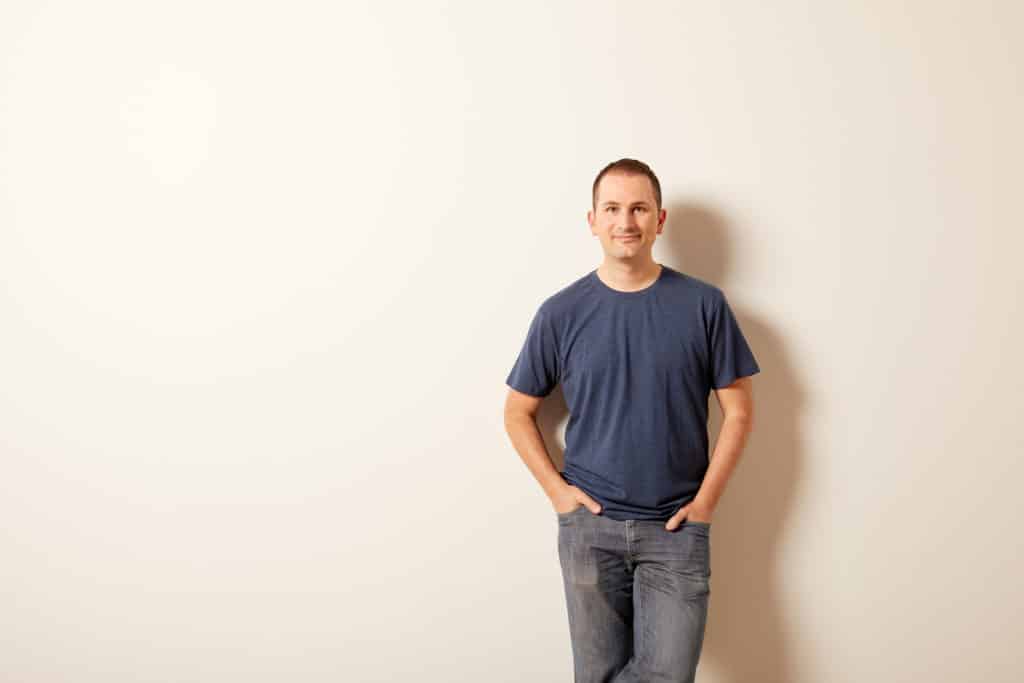
Peter Dalmaris interview on the Sentral Station podcast: Maker Education

Reason to Think: The defining aspect of these secular times must surely be the call to base our behaviour as a species on evidence-based reasoning
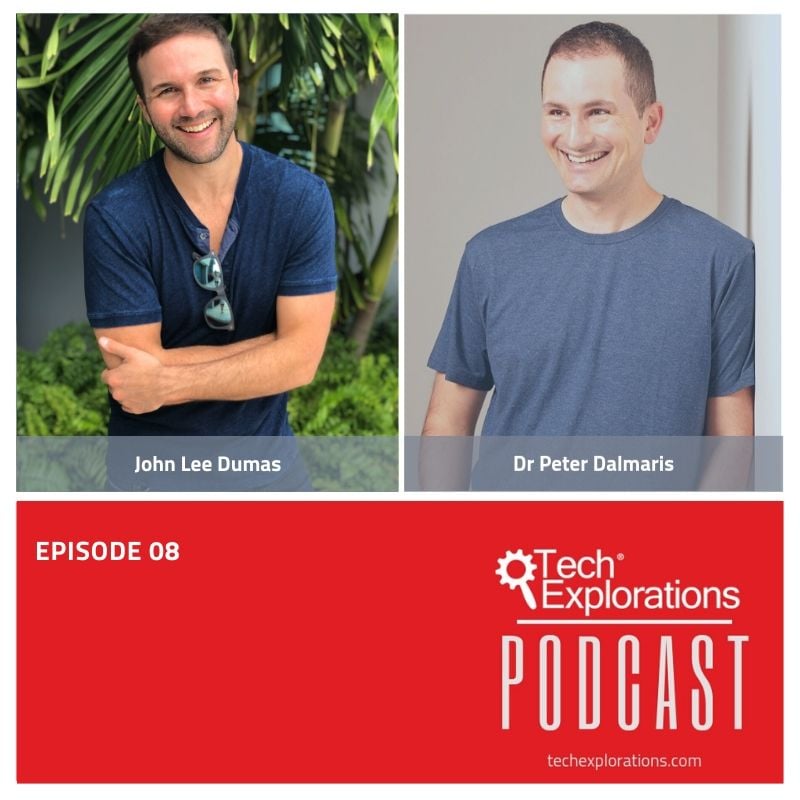
John Lee Dumas talks about self-education success
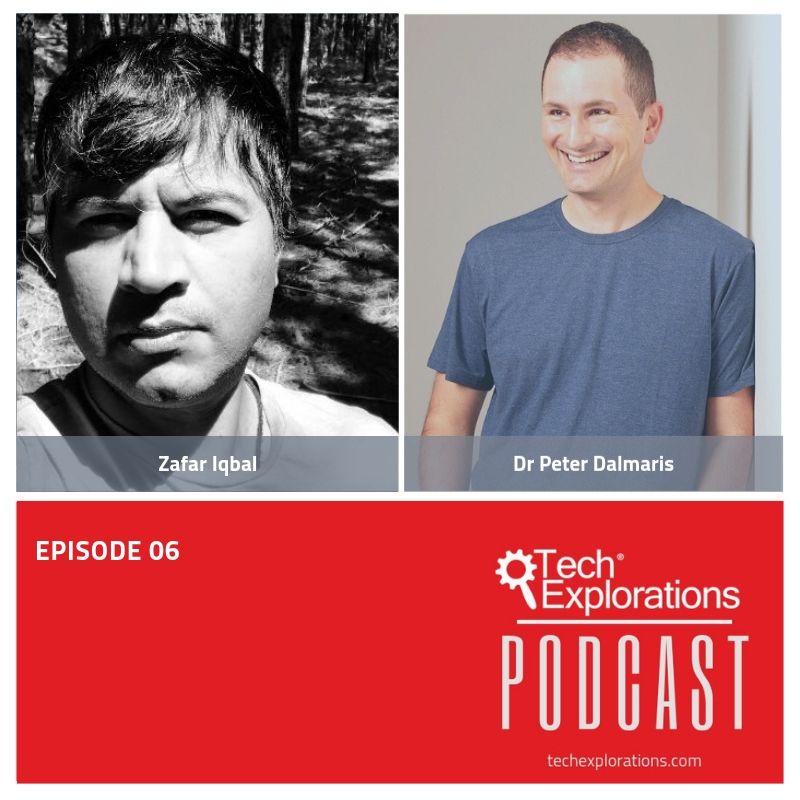
Zafar Iqbal tells unusual maker stories

Martin Zwigl, Creative Maker, and his Arduino Projects
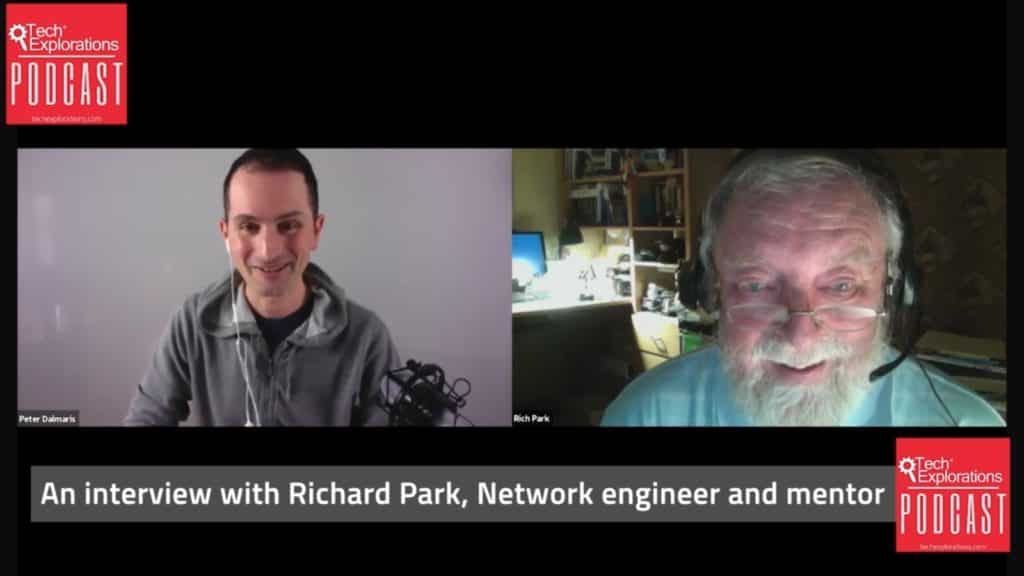
Richard Park on Network Engineering
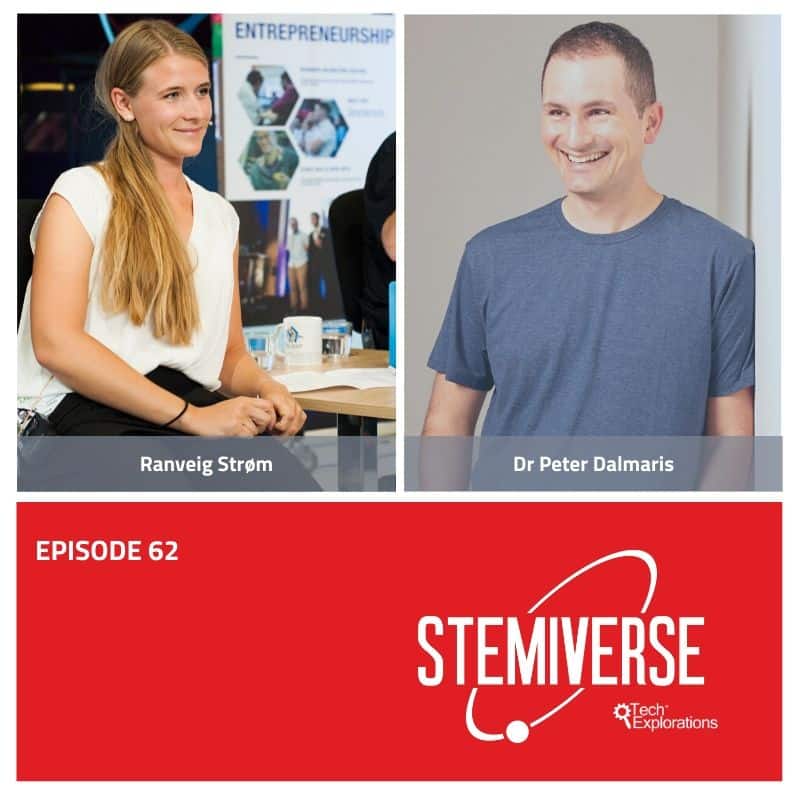
An interview with Ranveig Strøm: entrepreneurship at CERN
Want to learn a new technology? You will need three things:
Quality educational Content
Learning from the best available sources can make a huge difference in how quickly and how well you can master whatever it is that you want to learn. Excellent educational sources will not only teach you well and fast; they will also delight you.
Be an Active Learner
Technology education is hands-on.
The only way to truly learn something new is by executing your own simple experiments.
Each experiment is an opportunity to learn a new skill, capability, tool, or feature.
Work on Realistic Projects
Once you have acquire a few new skills, how can you consolidate your knowledge so that you can create a fully working machine, like a robot or a plant incubator? Project work is your opportunity to bring together everything you learned into a single activity.
Learn electronics, programming, and printed circuit board design.
Thousands of students have already taken our video courses to learn how to apply maker education principles in their learning and teaching.
Video on demand
With our video courses, it's like having a tutor showing you how to create circuits and write programs, one step at a time.
Help is here
If you need help, you can use our Community spaces tool to ask your questions, available in each lecture.
Keep calm and learn
Learn in a calm, distraction-free environment. No advertisements, no cat and dog videos to break your concentration. Just learning.
Join the Tech Explorations Insiders
Want to make sure that you get notified when I release my next article or video? Then sign up below to join my list of Tech Explorations Insiders.
You'll receive email notifications whenever I release new content plus you'll get access to insiders-only updates that aren't published on the site!
We never spam, and you can unsubscribe at any time.
By submitting this form, you agree to receive educational and promotional announcements from Tech Explorations. Your personal details will not be shared with anyone outside of Tech Explorations, and you may unsubscribe at any time.
Last Updated 2 years ago.
